6. Secret Honor (1984)
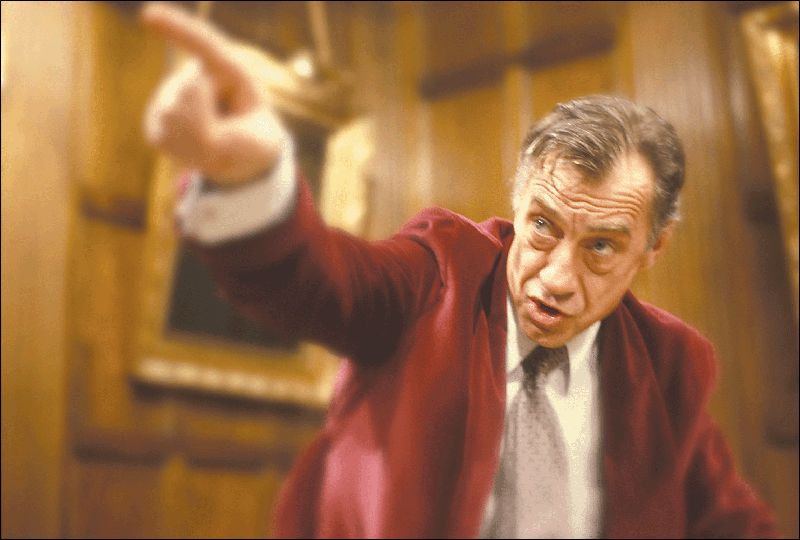
Robert Altman was the exact opposite of an overnight sensation, though the unknowing might have mistaken him for one. He began his directing career in his native Kansas City in the 1950s, making industrial films and a couple of best forgotten ultra-low budget features before getting to L.A and starting a new phase of his career as one of the top television directors of the 1960s.
That might have been enough for many, but he wanted a big screen career and managed to break the invisible movie wall against TV people by the end of that decade, though the ideas that he would soon use to exhilarating effect (overlapping dialog, improvised crowd scenes, etc.) did not endear him to the people in the front offices at first.
Then he was chosen by Twentieth Century Fox to helm a grungy little service comedy they were making almost as an afterthought to offset their big expensive war film “Patton” (1970). Though wildly different from that blockbuster, “M*A*S*H” turned out to be a big one as well and started Altman on a platinum half-decade of (mostly) memorable films, climaxing with his 1975 magnum opus “Nashville”.
Then, things started to go quite wrong for Altman. “Nashville” seemed to drain him and his output, never the most consistent in the best of times, started to include some surprisingly poor efforts. He bottomed out with 1980’s deplorable “Popeye” and started to look like one of those directors (such as Preston Sturges and Hal Ashby) who would fade away after one good decade. Those thinking that underestimated Robert Altman.
Determined to keep working, Altman started going in another direction. He directed a not very successful Broadway play revival in 1982’s “Come Back to the Five and Dime, Jimmy Dean, Jimmy Dean” and somehow got a deal to film it for the then-budding premium cable network HBO shortly thereafter, but surprisingly managed to get the effort a limited theatrical release which got some good notices. This started the filmmaker on a little remembered section of his career in which he adapted a number of intimate stage pieces with small casts and few of the traditional Altman trademarks.
These films would happily lead Altman back into the movie big leagues and his trademark style by showing how disciplined a filmmaker he could be. No film illustrated this better than the most interior of them all, “Secret Honor”.
The US (if not the world) was still struggling to make sense of the decidedly mixed legacy of infamous President Richard Nixon, who, of course, had resigned in disgrace a decade before, but who, much as many hated to admit it, had a few too many virtues to completely dismiss (unlike some others).
Though his one-time political nemesis, slain President John F. Kennedy (who, in absentia, figures mightily in this film), has been portrayed often on screens big and small, Nixon has as well and has proven somewhat more dramatically compelling, and never more so than here, where he is the only character on screen.
Taken from a regional play by Arnold M. Stone and Donald Freed and set in 1979, the action finds Nixon alone in the study of his New Jersey home in the middle of the night save for a loaded gun, a slowly emptying bottle of Scotch (a drink notably associated with the Kennedy family), a tape recorder (an ironic item to those knowing his history), and an array of closed circuit TV cameras recording him.
Over the next 90 minutes, Nixon goes through the whole of his life, mostly the political part, and vents his anger, paranoia, hurt and self-pitying venom, along with some ridiculous self-justification (not that, in his view, he did anything wrong). The making of this film is Altman’s deft handling and a superb performance by its Nixon.
Altman could still inveigle name actors into working with him (and his actors were overwhelmingly loyal to him), but he went with then obscure character actor Philip Baker Hall (mostly a stage actor at the time). Hall looks much more like the real Nixon than the bigger names who have portrayed him and also finds a vibe quite familiar to those who remember the real thing. Though he was shamefully denied an Oscar nomination, he was set on a fine career in indie films and TV. This film, a small treasure, stands as the monument of a unique time in its auteur’s career.
7. How to Get Ahead in Advertising (1989)
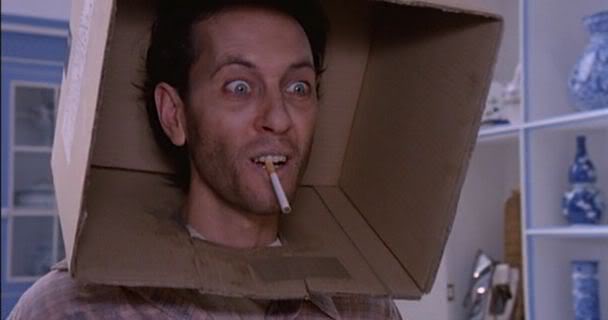
This entry is an excellent place to note not a lost filmmaker or actor or even a film to a great extent (though that no knock on this film). No, the great loss to be lamented here is a film company. HandMade Films had been started in the late 1970s by former Beatle George Harrison and his business partners, mainly due to the fact that they were huge fans of the comedy troupe Monty Python’s Flying Circus and wanted to give them a regular film outlet (which they did, and greatly encouraged member Terry Gilliam’s thrilling directing career).
However, the film company ended up making a number of wonderful little films to boot. The name of the company had started out as a sort of joke but it proved to be apt, for HandMade Films’ pictures were the kind of smaller budget, very personal and uniquely crafted films which were hard to come by even then (and can only be found in the indie world for several recent decades). They were to the 1980s what Ealing Studios had been to the filmmaking (certainly British) world in the 1950s. Sadly, economics doomed both studios to early demises and HandMade ended with the 80s.
“How to Get Ahead in Advertising” is a great example of HandMade’s work, even those there is no Python in sight. The director is Bruce Robinson, formerly an actor, and after a few films (mostly for HandMade), subsequently a screenwriter. He had created one of the company’s most beloved cult films, 1987’s “Withnail and I”. He imported that film’s ultra quirky leading man, stage actor Richard E. Grant, who gives performances among his best in both films. Backing Grant up are leading lady Rachel Ward and a superior cast of British character actors, headed by Richard Wilson as a boss from hell.
The story can be taken as a literal fantasy or in a more allegorical light. Grant plays a successful but conflicted advertising exec. His latest challenge, creating a campaign for a pimple cream, looks to be pushing him to the limit, thanks to mounting office pressures. These pressures appear to take on the form of a nasty boil on his shoulder, very near his head.
Even worse, the boil seems to be talking to him and what it’s saying is far from comforting. The boil is whispering the meanest and most cynical things concerning the man’s life and career into his unwelcoming ears. Horrifyingly, the thing seems to be growing and looks like it will take over!
One unusual quality of HandMade Films was that the company had the courage to go with unhappy endings, even in films which looked like they would never go to such a place. This film is among them and that might have disconcerted many viewers, but the unremitting finale gives the film much of its power.
8. Welcome to the Dollhouse (1995)
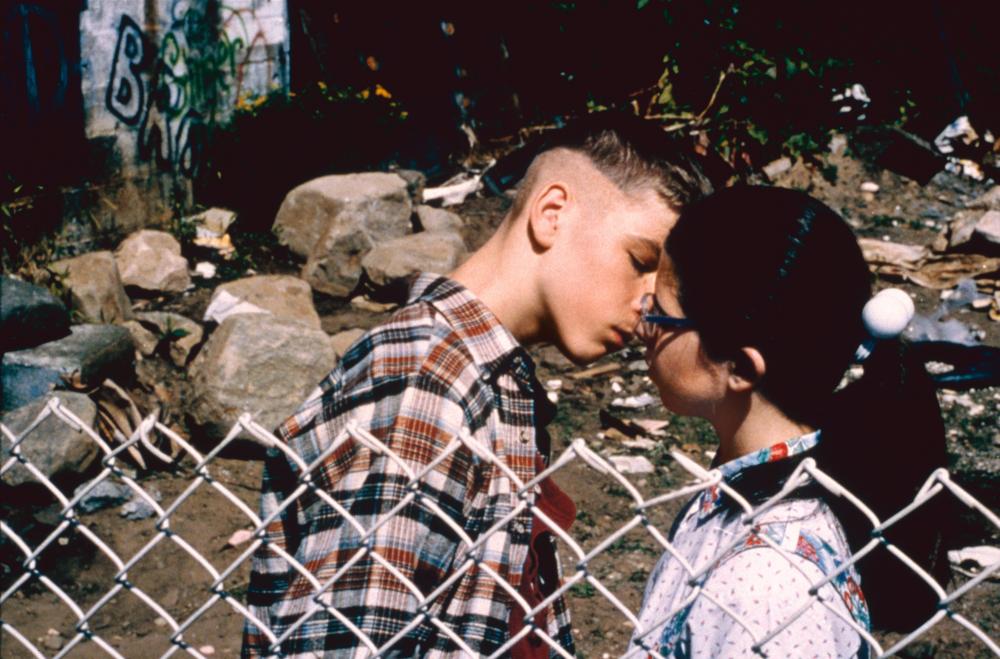
Lovers of cutting edge cinema may have justified concerns over the state of current non-mainstream filmmaking, but one thing that need never preoccupy their minds is the thought that Todd Solondz, the bleakest of black comedy filmmakers in the US today (and ever), will even remotely sell out.
Solondz, for those who many never have seen his picture (or him in person), is a most, well… unusual looking gentleman and it’s not hard to guess that his has not been a life full of pleasant kindness from others. If his films have autobiographical elements (and he says they do), then he has had a rough time of it indeed.
Though he has maintained a sense of humor (though his humor might well be right in line with Roman Polanski’s), the world he depicts is a most unfriendly and uncomfortable place and he seems to be making it his life’s cinematic work to make any and everyone viewing his films uncomfortable. No boy wonder, Solondz made his feature film debut at age 36 with “Welcome to the Dollhouse”. It may now be viewed as his lightest and brightest film… but that’s not saying much.
Though Solondz claims this is an emotionally biographical work, the focus is on a female character, middle school student Dawn Weiner (then-newcomer Heather Matarazzo). To say that Dawn’s life is no picnic would be an understatement. She is the middle child of a not very endearing family. Her older brother is very self-occupied and he’s somewhat favored by the parents because he’s the only boy. Her much younger sister is the princess of all time (she literally lives in a tutu) and she knows that, since she is by far the cutest physically; she is the darling of the clan members (Dawn notably excepted) and, boy, is she a brat.
And that’s the good part of Dawn’s life. School is an absolute nightmare. Dawn is far from pretty, has no fashion sense, and does not possess the sparkling personality and/or piercing wit and intelligence most ugly duckling stories bestow on their heroes and heroines (honestly, one can see why so many don’t much like her).
Her hateful nickname is “Weiner-dog” (which an ungrateful kid she’s trying to save from bullies calls her as he’s demanding for her to get away from him) and no one will allow her to sit with them in the cafeteria at lunchtime (and anyone who doesn’t understand what that means shouldn’t even be reading this). The teachers aren’t even nice to her.
To top it all off, Dawn has a really hopeless crush on a pretty worthless member of her brother’s garage band (bro is only putting it together in order to beef his potential college resume) and this low-class kid (Brendan Sexton) from school kind of likes her, but his way of expressing it leaves much to be desired (he keeps making semi-serious rape threats, with which Dawn seems to be semi-okay).
In most films such as this, there’s a wise grandparent or that colorful person down the street no one else understands but who sees the main character as special and who encourages the central character to get out and show ’em all before the end. Well, this is not that film.
In fact, the triumph of this film is that Solondz gets the viewer to root for someone simply because that person refuses to roll over and die, though many in that person’s life might wish for that to happen. Matarazzo (who should have a bigger career past the one she had in her juvenile years) is terrific in a role that must have be bruising to her vanity (especially for one so young). Oddly enough, this realistic ode to the underdog is an inspirational film is its own way (despite a pragmatically realistic ending). Just don’t let Todd Solondz know that.
9. Metropolitan (1990)
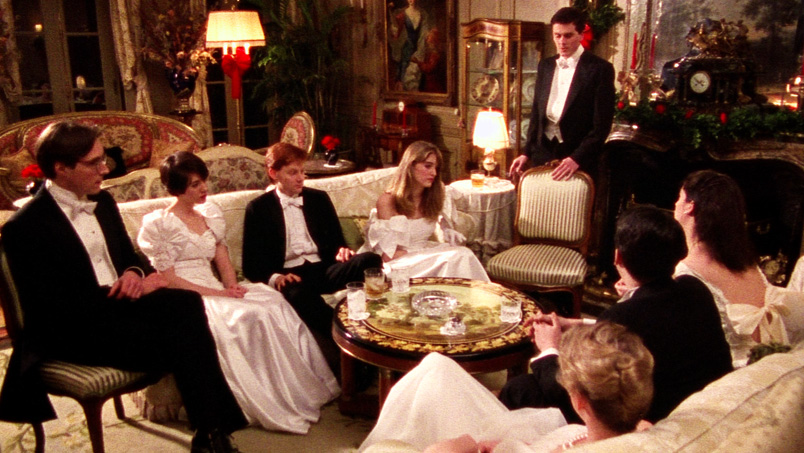
An intelligent film fan might be tempted ask, “Why hasn’t Whit Stillman had a bigger career?” However, if the questioner is intelligent, then the answer is one that person might well discern for themselves. The hellish part of that answer is that, for the most part, the same qualities which may well have caused the question to be asked in the first place are prominent among the answers. Stillman is a fine writer, far from one who creates cookie cutter scripts.
He is also a very good director, one who knows how to work with carefully chosen actors, who are often not well known at the time they work with Stillman. He has a fine feeling for periods and milieus and how time and place can affect characters. He doesn’t rush his films or cause them to be unduly exploitative. All of this sounds so good, but to a movie-going public which craves starry romance and continuous action in films where the pacing never lets up, films such as Stillman’s can easily hear the box office death knell.
The filmmaker has only released five films to date (and one television production). Most are period pieces with some of the periods being in recent memory or are placed in specialized cultural settings. All involve younger people at the beginning of their lives as adults and how the choices they make, not always the wisest, affect their lives.
Though he wrote the script for 1994’s Barcelona first, Stillman’s debut was Metropolitan, a rare non-period piece, though in many ways it feels as though it is one since those who inhabit the film’s social setting are quite insular and remote from what many would term the mainstream world.
The action takes place in Manhattan during Christmas break (also debutante ball season), and all of the main characters are upper-class young people just about to finish their education. This holiday will be really their last “carefree” holiday break before the adult world commences.
These rather privileged kids spend their time running from one party to another, ruminating over old or unrequited or potential loves (most never to be or never to be again), lots and lots of weighty discussions about philosophy (many of the kids are studying intellectual subjects which will prepare them for nothing in the practical world), and where their lives may be going in a society where their breed seems to be an endangered species.
The description sounds deadly (and most likely would be to many) but it plays well. The young cast gives excellent portrayals but only Chris Eigeman ever became a familiar face. Many could see the influence of Jane Austen and Henry James in Stillman’s writing (Austen has become a thing recent cinema but how many filmmakers would be inspired by the subtle James?) and noted the literate qualities in this script (and all subsequent ones by him). A Whit Stillman film may not be for everyone, but the initiated will always be waiting out the long time until the next one.
10. Shallow Grave (1994)
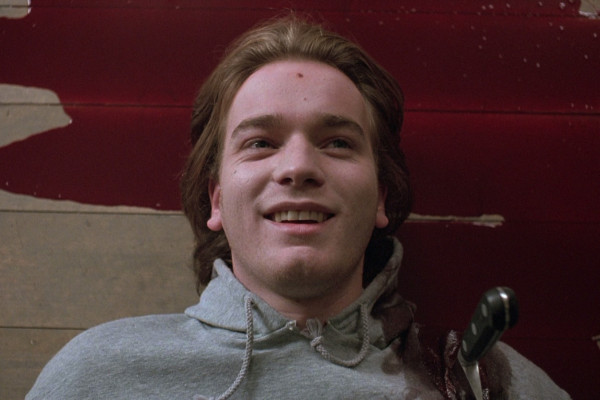
The day will come when British filmmaker Danny Boyle will be looked upon as one of the greats of his time. He won the hearts of the indie crowd spanning a few generations with 1996’s “Trainspotting” (enough to make a sequel in 2017!) and mainstream success with the Oscar-winning “Slumdog Millionaire” (2008) and nominated “127 Hours” (2010).
However, many forget that he got off to a flying start with a marvelously twisting and clever thriller (always a good genre for, at least, cult success). Even better, his debut film would showcase actors Ewan McGregor and Christopher Eccleston (along with Kerry Fox), budding actors he would guide to success.
“Shallow Grave” is set in Edinburgh (a location dear to Boyle’s heart) and focuses on three roommates (the above mentioned actors), professional people who are auditioning (in a rather hateful manner) candidates among those who wish to join them as their fourth housing partner. They settle on a mysterious man named Hugo (Keith Allen), who shortly after arrival, dies of a drug overdose and leaves behind a large suitcase full of money.
Somehow, the three supposedly intelligent people decide to keep the money and get rid of the body, never taking into account the facts that 1.) Hugo might be connected to someone, and 2.) he and whoever he was partnering with probably got the money via less than ethical means.
They soon learn of their misjudgments when the two criminals from whom Hugo was fleeing (and who are notably not nice people) come looking for him, or, actually, the money. What ensues are more murders and lots of developing greed among the three who each begin to wish for more money than the equal third to which they all originally agreed.
Perhaps the story is not that original to suspense fans but the treatment is fresh and stylish and enthusiastic. The film was a big hit in Britain, despite a very limited budget, but somehow, the film’s release got delayed in other parts of the world and the box office grosses weren’t nearly as good in those places. However, when “Trainspotting” hit pay dirt two years later, “Shallow Grave” received a share of reflected glory.
Honestly, it deserved better, but Boyle and his later reputation did allow many to catch up with the film (mostly on home video/steaming) in later times. Well… better late than never, one supposes.
Author Bio: Woodson Hughes is a long-time librarian and an even longer time student/fan of film, cinema and movies. He has supervised and been publicist for three different film socieities over the years. He is married to the lovely Natalie Holden-Hughes, his eternal inspiration and wife of nearly four years.